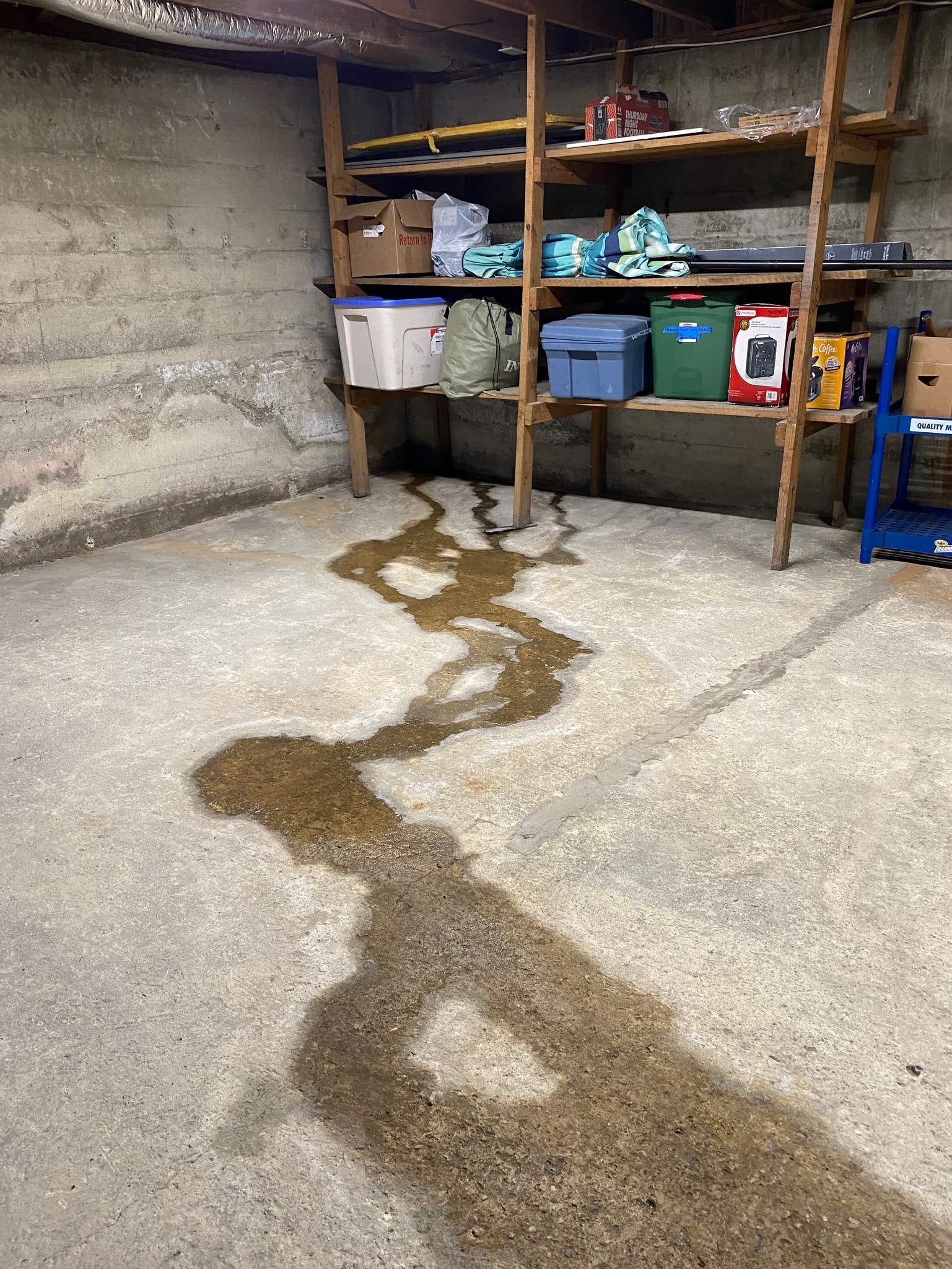
If you’re living with a basement that’s prone to flooding, you’ve probably realized the importance of waterproof flooring. There’s a range of options like vinyl, ceramic tiles, or even concrete that serve as a sturdy bulwark against water damage. But, what are the pros and cons of each, and how do they compare regarding cost and durability? That’s a discussion worth having, isn’t it? Let’s navigate through these options, and perhaps find the one that suits your needs the best.
Key Takeaways
- Vinyl flooring is a cost-effective, durable option that effectively resists water damage.
- Ceramic and porcelain tiles offer great water resistance, especially when glazed, suitable for basements.
- Concrete flooring provides excellent moisture resistance and is ideal for flood-prone basements due to its resilience.
- Epoxy floor coatings offer a seamless design that enhances water resistance and durability, suitable for both residential and commercial basements.
- Rubber flooring is naturally water-resistant, durable, and offers a slip-resistant surface, ideal for busy basements.
Understanding Waterproof Flooring
Over time, homeowners have realized the importance of installing waterproof flooring, especially in flood-prone areas like basements. You might be asking yourself, what exactly is waterproof flooring?
Well, it’s a type of flooring that’s designed to withstand water damage, making it the perfect solution for areas of your home that are exposed to high moisture levels.
Waterproof flooring is crafted from waterproof materials that can repel water instead of absorbing it. These materials can vary, but they typically include vinyl, porcelain tile, and sometimes even specially treated hardwood.
Flooring manufacturers have been hard at work, constantly pushing the boundaries of flooring innovations to improve the durability and water-resistance of their products.
You might be thinking that waterproof flooring only comes in dull and unappealing designs, but you’d be surprised.
With the advancements in flooring technology, you can now choose from a wide array of styles and designs that can match any aesthetic you’re aiming for.
From the natural look of wood to the sleek finish of stone, you’re bound to find a waterproof flooring option that suits your taste and needs.
Benefits of Waterproof Flooring
Benefiting from waterproof flooring, you’ll find it’s not just about preventing water damage. It’s a long-term investment that brings additional significant benefits.
One of the most compelling is the aesthetic appeal. Waterproof flooring options come in a wide range of styles, colors, and textures, enabling you to choose a design that suits your space and personal tastes.
You’ll appreciate the low maintenance requirements of waterproof flooring. It’s easy to clean, and you won’t have to worry about water stains or damage from spills. This not only saves you time but also helps to maintain the floor’s appearance over time.
Your home’s value can also see a boost from installing waterproof flooring. Potential buyers will look favorably on this feature, especially in basements, where moisture problems are common. It’s an investment that can pay off down the line if you decide to sell.
In addition, you’ll enjoy the peace of mind that comes from knowing your basement is protected against potential water damage. This is especially relevant if you live in a flood-prone area.
Vinyl: Affordable and Resilient
Let’s turn our attention to vinyl flooring, a cost-efficient and resilient option for your basement.
With its impressive resistance to water damage, it’s a wise choice for flood-prone areas.
Plus, you’ll find the installation process is straightforward and user-friendly.
Vinyl Flooring: Cost Efficiency
If you’re on a budget, vinyl flooring is a resilient and cost-effective option to contemplate for your flood-prone basement. Vinyl flooring won’t break the bank, yet it doesn’t skimp on quality. This type of flooring captures the essence of expensive materials without the hefty price tag.
You’ll love how vinyl aesthetics can mimic the look of hardwood, ceramic, or stone, making your basement appear upscale without draining your wallet.
Additionally, vinyl longevity is another factor that contributes to its cost efficiency. With proper care, vinyl flooring can last for decades, which means you’re not only saving money upfront but also in the long run. This durability is especially crucial for flood-prone basements, where the flooring needs to withstand the occasional water damage.
Moreover, vinyl flooring is relatively easy to install, which can greatly reduce labor costs if you’re into DIY projects. On the other hand, even if you’re hiring professionals, the installation process is usually quicker compared to other flooring options, helping you save on labor costs.
In a nutshell, vinyl flooring provides a perfect blend of affordability, durability, and aesthetic appeal, making it a smart choice for budget-conscious homeowners with flood-prone basements.
Resilience Against Water Damage
While cost efficiency is a significant advantage of vinyl flooring, its resilience against water damage is equally impressive.
Vinyl’s water-resistant nature makes it a leading choice for basements prone to flooding or high moisture levels. It’s a prime example of a practical solution for water damage prevention.
You’ll appreciate how vinyl doesn’t swell or warp when exposed to water, unlike many other flooring materials. This unique characteristic is due to its synthetic composition which naturally repels water.
It’s also non-porous, which means it won’t absorb any moisture, reducing the risk of mold or mildew growth. This water-resistant feature also makes it an excellent option for damp areas in your home beyond the basement.
Moreover, vinyl flooring offers additional moisture barrier solutions. With a proper underlay, it creates a barrier that further strengthens its resilience against water damage.
This extra layer not only protects your floor but also contributes to the longevity of the vinyl, giving you more bang for your buck.
Easy Vinyl Installation Process
One might be wondering about the installation process of vinyl flooring. Fear not, it’s a pretty straightforward task. You’ll appreciate the simplicity of its installation techniques, which are designed with the do-it-yourselfer in mind.
First, verify your subfloor is clean, dry, and level. Imperfections can affect the finished floor, so take the time to prep correctly. Then, take measurements of your space. You’ll need this to determine the amount of vinyl flooring required.
Next, lay out your vinyl planks to plan the pattern and balance the floor’s appearance. Starting at the center of the room gives you more flexibility in case the walls aren’t perfectly square.
Now, you’re ready to start the installation. Usually, vinyl flooring comes with a simple click-and-lock design, making it easy to connect the planks together. You’ll work your way outward from the center, securing each plank as you go.
Don’t forget to leave a small gap at the edges for expansion. Lastly, apply trim and molding to cover those expansion gaps. Voila! You’ve just installed vinyl flooring in your flood-prone basement.
Ceramic and Porcelain Tiles
You might think ceramic and porcelain tiles are only for bathrooms and kitchens, but they’re a great option for your basement too.
They’re both hardy materials that can resist the wear and tear of foot traffic, as well as the occasional flooding that basements are prone to. In fact, when properly installed, these tiles can outlast many other types of flooring.
One of the major advantages of ceramic and porcelain tiles is their water resistance. Thanks to their glazed finishes, they’re virtually impervious to water. This means you won’t have to worry about water damage or staining, even in the event of a flood.
Ceramic and porcelain tiles also come in a variety of textured surfaces. This is important because basements can be damp and slippery. With a textured surface, you’ll have extra traction underfoot, reducing the risk of accidents.
Of course, installation can be tricky, and it’s vital to guarantee a good seal to prevent water from seeping underneath.
But with the right preparation and professional help, you can enjoy a beautiful, waterproof basement floor that’s built to last.
Concrete: A Sturdy Option
Let’s now consider concrete, a sturdy and resilient option for your basement flooring.
You’ll be impressed by its durability, ease of installation, and straightforward maintenance.
Most importantly, concrete’s resistance to moisture makes it a strong contender in flood-prone environments.
Concrete Flooring Durability
To sum up, concrete isn’t just ‘sturdy.’
It’s a force to be reckoned with, a flooring option that’s tough, resilient, and made even more robust by reinforcement techniques and surface treatments.
When it comes to flooring for a flood-prone basement, it’s a choice you won’t regret.
Installation and Maintenance
Opting for concrete flooring in a flood-prone basement means considering its installation and maintenance. Initially, you require professional help for installation as it involves specific flooring techniques. The process starts with the preparation of the base, ensuring it’s clean, smooth, and dry.
Next, concrete is poured and evenly spread before being left to cure.
Once installed, don’t overlook the importance of regular maintenance. It’s not as difficult as you might think, but it does demand consistency. Concrete floors are hardy, however, they aren’t immune to wear and tear. Regular sweeping or vacuuming helps maintain its look and longevity.
For deeper cleaning, use a pH-neutral cleaner to prevent surface damage.
Moreover, consider resealing the surface every few years. This isn’t just for aesthetic purposes, it’s also a crucial maintenance tip. Resealing provides an extra layer of protection against moisture, stains, and scratches.
This might seem like a chore, but it’s a small price to pay for maintaining a durable, flood-resistant basement floor.
Concrete’s Moisture Resistance
Imagine having a basement floor that laughs in the face of flooding. That’s what you get with concrete.
Now, you might be thinking that concrete is porous and absorbs water, right? Well, yes, but there’s more to the story. When properly treated with sealing techniques, concrete floors can provide some serious moisture resistance.
Think of it like this: the concrete is your sturdy, reliable bodyguard and the sealant is its impenetrable armor. Together, they make an unbeatable team against water invasion. These sealing techniques create moisture barriers that prevent water from seeping into the concrete, effectively making your basement floor waterproof.
So, when you’re faced with a potential flood, concrete doesn’t flinch. It stands strong, protecting your basement from the perils of water damage.
But remember, it’s not about just pouring concrete and calling it a day. You’ve got to seal it properly, ensuring those moisture barriers are in place.
With concrete’s moisture resistance, you can rest easy knowing that your basement floor is more than capable of standing up to the challenge. It’s a sturdy option that’s worth considering, especially if you’re living in a flood-prone area.
Epoxy Floor Coatings
After weathering yet another storm, consider giving your basement floor a serious upgrade with epoxy floor coatings. One of the significant epoxy advantages is its resistance to water damage, making it an excellent choice for flood-prone areas.
Epoxy offers a seamless and durable surface that’s resistant to moisture, chemicals, and heavy traffic. It’s easy to clean and maintain, and it can dramatically enhance the look of your basement.
Epoxy applications aren’t limited to just residential basements. They’re also used in commercial and industrial settings due to their robustness and versatility.
Let’s take a closer look at some of the key epoxy advantages:
| Feature | Advantage | Application |
|---|---|---|
| Water Resistance | Survives flooding | Basements, Garages |
| Durability | Withstands heavy traffic | Commercial, Industrial areas |
| Easy Maintenance | Simple to clean | Homes, Offices |
| Versatility | Enhances aesthetic appeal | Living spaces, Showrooms |
Rubber Flooring: Safe and Durable
If your basement’s safety and durability are top priorities, rubber flooring might be your best bet. Rubber benefits extend beyond just being waterproof. It’s resilient, easy to clean, and most importantly, it’s safe.
Rubber floors offer a cushioned surface that’s slip-resistant, making it an ideal choice for areas where water might be an issue. It’s also durable, with a long lifespan if properly maintained.
Here are some key highlights to evaluate:
- Water Resistance: Rubber is naturally water-resistant, making it perfect for flood-prone basements.
- Comfort: The cushioned surface provides comfort underfoot, reducing fatigue during long periods of standing.
- Safety: Rubber’s slip-resistant quality reduces the risk of accidents.
- Durability: Rubber can withstand heavy traffic and wear, lasting for years with proper care.
- Easy Maintenance: Rubber maintenance is a breeze. Routine sweeping and mopping keep it looking new.
With rubber flooring, you’re investing in a safe and durable solution for your basement. It’s easy on the feet, easy on the eyes, and most importantly, easy to maintain.
Comparing Costs of Flooring Options
While rubber flooring offers numerous advantages, including safety and durability, it’s also important to contemplate the financial aspect of your flooring choice. Let’s explore a laminate comparison, as well as hardwood alternatives, to give you a better understanding of costs.
Here’s a quick comparison table to help you visualize the differences:
| Flooring Option | Approximate Cost per Square Foot |
|---|---|
| Rubber | $3 – $8 |
| Laminate | $1 – $5 |
| Hardwood | $5 – $15 |
| Tile | $1 – $20 |
| Concrete | $2 – $6 |
As you can see, laminate is a cost-effective option, but concrete and rubber can also be affordable. Hardwood is generally more expensive, but its classic appeal may be worth the extra cost for some. Tile costs can vary greatly depending on the type and quality.
Installation Tips for Waterproof Floors
Maneuvering the maze of waterproof flooring installation can be a challenging task. You’re likely to encounter installation challenges and at times, it’s okay to ask for professional assistance.
But before you plunge into it, here are some handy tips to guide you through the process:
- Always verify your subfloor is clean, dry, and level before installation. Any unevenness or debris can cause problems later on.
- Invest in a quality underlayment. This not only provides extra moisture protection, but also offers sound insulation and comfort underfoot.
- Remember to leave an expansion gap around the edges of the room. This allows the flooring to expand and contract with temperature fluctuations.
- Always follow the manufacturer’s instructions. Each type of flooring has its unique requirements and skipping steps could lead to problems down the line.
- Finally, don’t rush. Take your time to properly measure, cut, and fit each piece. Patience really is key to a successful installation.
Frequently Asked Questions
What Maintenance Is Required for Different Types of Waterproof Flooring?
You’ll find that maintenance varies for different waterproof floors.
Vinyl requires regular sweeping and occasional deep cleaning.
Ceramic tiles might need resealing over time.
Meanwhile, concrete can stay good with occasional sealing.
With epoxy, you’ll need to watch for chips that could need repair.
Regarding repair costs, vinyl and ceramic tiles are typically cheaper to fix than concrete or epoxy.
It’s essential to understand each floor’s cleaning and repair needs before installation.
Are There Eco-Friendly Waterproof Flooring Options Available?
Yes, there are eco-friendly waterproof flooring options available for you!
Consider using sustainable materials like cork or bamboo. They’re not only waterproof but also naturally resistant to mold and bacteria.
Additionally, recycled plastic flooring is a great option; it’s durable and can be designed to resemble wood.
Whichever option you choose, remember to use eco-friendly installation techniques. It’s about preserving the environment while keeping your space dry and stylish.
Does Waterproof Flooring Improve the Value of My Home?
Waterproof flooring can greatly improve your home’s value.
It’s a great investment benefit as it offers long-term protection to your property.
Additionally, it enhances buyer appeal due to its practicality and durability.
Potential buyers will appreciate the added assurance of having a flood-resistant home.
How Long Does Waterproof Flooring Typically Last?
When you’re considering the lifetime expectations of waterproof flooring, its typical lifespan is impressive. If you maintain it properly, it can last up to 25 years or more.
However, durability comparisons are essential as well. Compared to traditional flooring, waterproof options are more resilient to wear and tear, making them a long-term investment.
What Are the Best Waterproof Flooring Options for Homes With Pets?
When considering flooring options for homes with pets, you’ll want to look at pet-friendly materials that are also waterproof.
Vinyl plank flooring is often the top choice. It’s durable, scratch-resistant, and can handle accidents from your furry friends.
Luxury vinyl is another good option, boasting similar benefits as vinyl plank.
Ceramic or porcelain tile also offer excellent water and scratch resistance.
Conclusion
So, you’ve got a flood-prone basement and need a robust flooring solution. Consider vinyl, ceramic, or porcelain tiles, even concrete. They’re all durable, water-resistant, and require little maintenance. Don’t forget about epoxy coatings or rubber flooring, both safe and sturdy options. Compare costs, consider installation tips, and choose what suits your needs and budget best. With the right waterproof flooring, say goodbye to water damage and hello to a worry-free basement.

Seal-tite Basement Waterproofing Co. is a full service basement environment contractor. We carry an A+ Better Business Bureau rating. We repaired over 40,000 homes and structures in Virginia, West Virginia, Tennessee, and North Carolina. We are fully insured and licensed. We have worked in all types of locations, including residential and commercial locations, government agencies, colleges, hospitals, churches, and condo associations.
Seal-tite® offers a lifetime transferable warranty. We carry a Class A Contractor’s License and we are fully insured. Our satisfied customers range from government agencies to businesses, hospitals, colleges, churches, and thousands of homeowners. Your home is probably the single largest investment you will make in your lifetime. Don’t wait, call Seal-tite® to help make your home dry, safe and livable.

